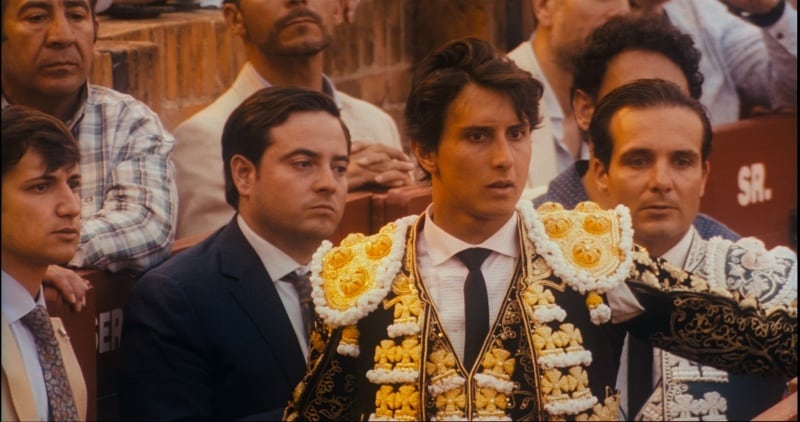If one were anti-bullfighting, which is not the case, one would be angry as a miura after the “unanimous and quickly made” decision by the jury of the San Sebastián Film Festival to award the Golden Shell, its highest award, to the documentary Lonely afternoonsdedicated to the world of bullfighting.
And he would have a face like a thousand devils because, even if it is a work of art or it crudely exposes the agony of the death of bulls, it is still a reason for talking and debating about bullfighting. Or is it perhaps a provocation from the director in the form of a somersault to all those who search for the most incisive adjectives to denigrate an ancestral festival that continues to interest a few million people inside and outside our borders?
It is not easy to deduce from the statements of Albert Serra, its creator, whether the work is bullfighting or anti-bullfighting. And I hope it’s neither one nor the other. I hope it is just cinema, a work of art, without causes or ideology, and only shows the reality of the bullfighting spectacle.
And it is evident that in the bullfight there is blood, death rattles, animal agonies, violence… But also the soul of men and women destined to live with the supreme risk and determined to balance glory and death; Bullfighting is also a treaty of will, sacrifice, effort, of constant struggle against the normality of life. Bullfighters are not human; or, at least, they don’t seem like it. They are governed, perhaps without knowing it, by other norms, foreign to the usual social noise. And they are afraid, more of failure than of the bull, and, many times, their fiercest enemy is not in the square, but in the offices where they are frequently beaten and left battered, perhaps, for the rest of their lives.
Bullfighting is a spectacle that also produces diverse sensations; Some reject it and feel an uncontrolled aversion, and others find in the fight a reflection of life filled with emotion, admiration, feeling and beauty. And they are not torturers because they do not enjoy bloodshed, nor are those who reject it saints.
Violence is present in our lives every morning; and in many expressions we have been able to normalize and accept it. Violence in cartoons, in video games, in recreational activities to fight stress, in human castles in whose heads young children are placed… Has the 10-year-old minor injured after falling from the ICU already left the ICU? a castell in Vilafranca del Penedés at the end of August?
But the controversy and radicalization focuses on the bulls; perhaps, because there is a strengthened animalism industry that has found in bullfighting the perfect excuse to gain followers. Because the controversy is carried out by those who are against it, generally few, but noisy and with an inexplicable advantage: they find a favorable echo in all the media.
Are all journalists in this country anti-bullfighting? No. The thing is that politicians, all of them, have managed to elevate the aversion to bullfighting to the status of politically correct and, today, being anti-bullfighting is progressive.
This is one of the great fallacies of today’s society: the politicization of bullfighting; That is the origin of the radicalization of so many who see their disappearance as social progress.
The jury said the best thing about the San Sebastián festival award: Lonely afternoons It opens debate, and for this the screen must reflect bullfighting with all its faces and its polysemy. Bullfighters should not be intimidated by the blood being shown, which is part of the festival; Nor do opponents feel betrayed by an award that invites debate.
Vicente Royuela, professor of Applied Economics at the University of Barcelona, published in 2021 a Study of the economic and social factors that impact the celebration of bullfighting shows in Spain, based on the bullfighting statistics published by the Ministry of Culture.
Royuela pointed out that in 2014, 53% of Spaniards expressed zero interest in the bullfighting festival, a figure that increased three points four years later. And he added: in 2018, 25 percent (about 11 million) rated their likability between five points or more on a scale from zero to ten. And Royuela concluded: neither disinterest means rejection nor attachment is synonymous with assistance. “It is one thing if you are not interested and quite another if you are against it,” commented the professor. “If you are asked if you care about historical archives, and you answer no, the answer does not express a contrary position.”
The bullfighting festival is as controversial as life, and it will disappear the day society voluntarily turns its back on it. The rest is imposition, an attitude as execrable as trying to end the castellers.
“Luck belongs to the brave,” said Albert Serra, and confesses that he is a bullfighting fan. For this reason, without a doubt, he has thrown himself into the rocky arena and has had the audacity to open the debate. Welcome, and congratulations.

